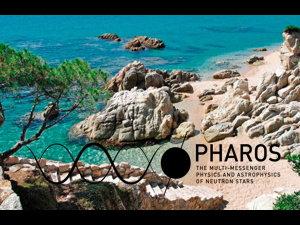Speaker
Dr
Federico García
(AIM (Université Paris Diderot, CEA-Saclay, CNRS))
Description
High mass X-ray binaries (HMXBs) are binary systems formed by a compact object (either a neutron star (NS) or a black hole) accreting from a massive stellar companion. These objects have gained new attraction after the discovery of gravitational waves emitted in compact object mergers of binary black holes and neutron stars. HMXBs are thought to be progenitors of these systems, depending on several uncertainties in binary stellar evolution: particularly the strength of natal kicks in supernovae.
On 2018, April 22nd, Gaia Data Release 2 (DR2) was published, containing 1.7 billion stars. For 76% of the sources in the catalog, a five-parameter (5D) astrometric solution was obtained, including the position, parallax and proper motion. We cross-matched an updated list of HMXBs, finding 92 counterparts with good astrometry, previously unknown for these sources.
We used the 5D information from GAIA DR2 to study their peculiar velocities in the Milky Way, aiming to put constraints on the natal kicks experienced during the formation of the NS in these systems. We find that roughly 10% of the HMXB population shows a high peculiar velocity, incompatible with Galactic rotation, which we interpret as an indication of an strong kick. This part of the population includes HMXBs already classified as high-proper motion systems but, based on the proper motions derived from GAIA DR2 data, we were able to also reveal new sources and significantly increase the statistics.
We compare our velocity distribution with simulations of systemic velocities of HMXBs for different natal kicks of NSs and we discuss our results with other results coming from the pulsar population and NSs in low-mass X-ray binaries.
Primary author
Dr
Federico García
(AIM (Université Paris Diderot, CEA-Saclay, CNRS))
Co-authors
Mr
Francis Fortin
(AIM)
Prof.
Sylvain Chaty
(Université Paris Diderot - CEA Saclay)

